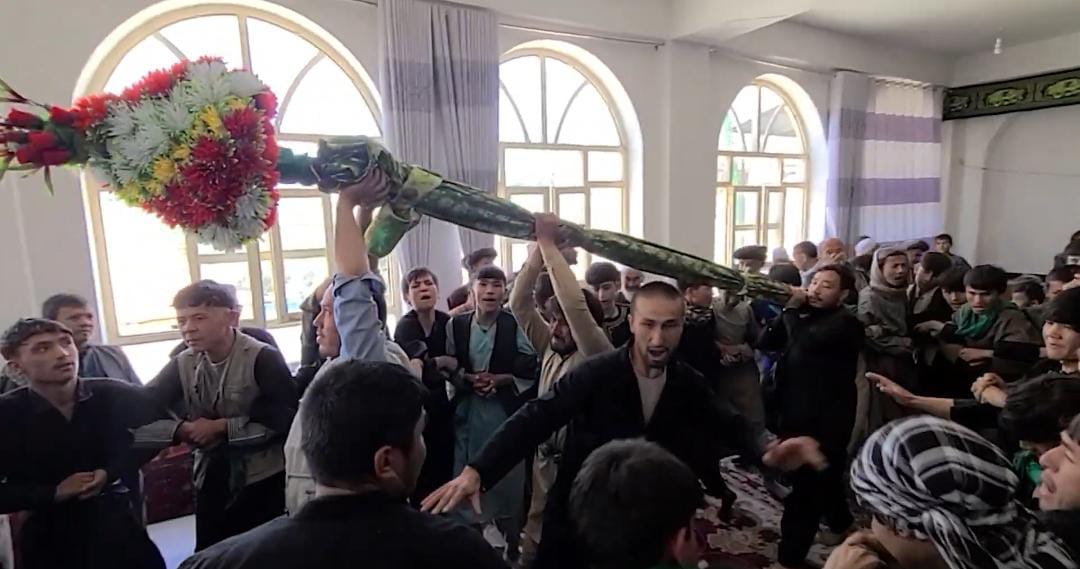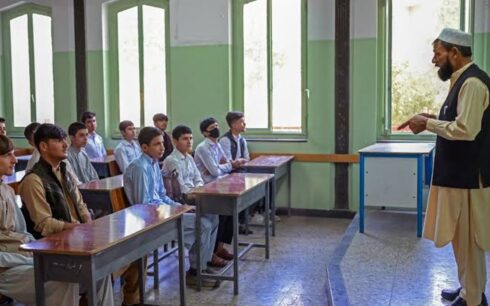KABUL, Afghanistan — Residents of Farah and Ghazni provinces report that the Taliban has imposed severe restrictions on Muharram ceremonies, adding to the growing list of limitations on the commemoration of the sacred month.
On Sunday, the eighth day of Muharram, the atmosphere in these provinces was markedly different from previous years. Empty streets and heightened security measures highlighted the stringent controls the Taliban has placed on Muharram mourners.
Residents in Ghazni told Amu TV that the Taliban has enacted unprecedented restrictions on their religious ceremonies. They reported that the Taliban removed religious flags—symbols of the Muharram commemoration—from public places, shops, and homes. The Taliban have directed Shia residents to confine their Muharram observances to mosques and religious centers.
“This year, the restrictions on Muharram ceremonies in Ghazni are harsher than before,” one resident said. “Loudspeaker use for mourning has been banned, and people cannot hold public processions as they used to.”
Similar reports have emerged from Farah, where locals describe the Taliban’s severe restrictions on Muharram events. Residents say the Taliban has ordered Shia communities to limit their ceremonies to mosques and avoid using loudspeakers for mourning rituals.
One Farah resident shared, “The restrictions on Muharram mourners have increased. The Taliban are taking down flags and instructing people to hold their ceremonies only in mosques and religious centers.”
In Kabul, the situation is equally tense, with stringent measures in place. Images obtained by Amu TV show that the Taliban has blocked all routes to the Sakhi Shrine, a significant site for Muharram observances. Reliable sources told Amu TV that journalists have been barred from covering the events at the shrine.
Maryam, a Kabul resident, commented, “The Taliban have imposed the most severe restrictions on Muharram ceremonies, closing all roads to the Sakhi Shrine.”
The Taliban’s harsh approach towards Shia citizens has sparked reactions. An Iranian cleric described the Taliban’s actions as reminiscent of Yazid, the historical figure synonymous with oppression in Shia Islam. He condemned the Taliban’s measures as unjust and inhumane.
“The Taliban’s stance against the Shia is oppressive, and anyone imposing restrictions on Muharram is viewed as Yazid in Shia thought. The Taliban should not place themselves in such a position,” the cleric stated.
The National Resistance Council also issued a statement condemning the Taliban’s restrictions as “inhumane, against Islamic values, and a clear violation of human rights.” The statement highlighted that these actions under the guise of security are, in fact, terrorizing citizens and undermining their psychological security.
Muharram is one of the most significant religious observances for Shia Muslims worldwide, including in Afghanistan, where it holds great importance for both Shia and Sunni communities. However, many Afghans believe the Taliban are actively seeking to curtail these religious ceremonies in the country.





